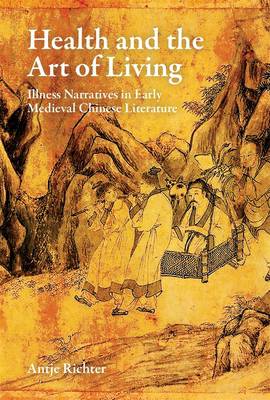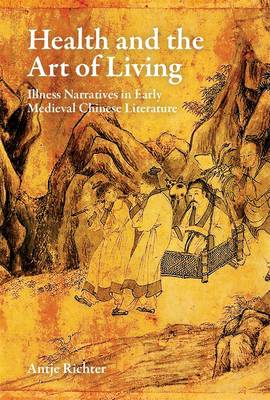
Bedankt voor het vertrouwen het afgelopen jaar! Om jou te bedanken bieden we GRATIS verzending (in België) aan op alles gedurende de hele maand januari.
- Afhalen na 1 uur in een winkel met voorraad
- In januari gratis thuislevering in België
- Ruim aanbod met 7 miljoen producten
Bedankt voor het vertrouwen het afgelopen jaar! Om jou te bedanken bieden we GRATIS verzending (in België) aan op alles gedurende de hele maand januari.
- Afhalen na 1 uur in een winkel met voorraad
- In januari gratis thuislevering in België
- Ruim aanbod met 7 miljoen producten
Zoeken
Health and the Art of Living: Illness Narratives in Early Medieval Chinese Literature
Antje Richter
€ 86,95
+ 173 punten
Omschrijving
Health and the Art of Living offers reflections on health and illness in early medieval Chinese literature (ca. 200-ca. 600). Surveying a range of literary sources--essays, prefaces, correspondence, religious scriptures, and poetry--it explores the spectrum of views on health and illness expressed in these texts. Part One, centered on the essay "Nurturing the Vital Breath" in Liu Xie's Literary Mind and the Carving of Dragons, reveals the deep concern of writers, troubled by overwork and excessive mental exertion, with the preservation and cultivation of their literary creativity. For them, the ability to write was inextricably connected with their social roles as officials. Part Two turns to self-narratives of health and illness in authorial prefaces, informal notes, formal letters, and official communications. Writers of these texts depicted their physical condition according to specific rhetorical purposes, whether that was to legitimize authorship, maintain intimate relationships, or avoid office. Part Three describes the rise of sickbed poetry, shaped by Xie Lingyun and the Vimalakīrti-nirdeśa-sūtra, which established illness as a topic in the refined literature of the period. Drawing attention to the grounding of literature in the lived experience of their creators, this book illuminates the conditions of literary production in early medieval China.
Specificaties
Betrokkenen
- Auteur(s):
- Uitgeverij:
Inhoud
- Aantal bladzijden:
- 292
- Taal:
- Engels
- Reeks:
Eigenschappen
- Productcode (EAN):
- 9780674299986
- Verschijningsdatum:
- 26/08/2025
- Uitvoering:
- Hardcover
- Formaat:
- Genaaid
- Afmetingen:
- 162 mm x 235 mm
- Gewicht:
- 539 g

Alleen bij Standaard Boekhandel
+ 173 punten op je klantenkaart van Standaard Boekhandel
Beoordelingen
We publiceren alleen reviews die voldoen aan de voorwaarden voor reviews. Bekijk onze voorwaarden voor reviews.









